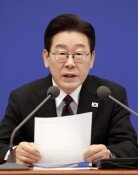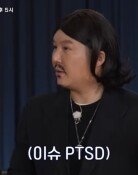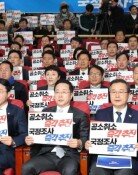A passage of pension reform bill to be blamed by future generations
A passage of pension reform bill to be blamed by future generations
Posted May. 06, 2015 07:23,
The revised pension reform bill for civil servants, which both ruling and opposition parties pretended to reform, will be put on vote in the National Assembly today. The bipartisan bill is meaningless. It will increase the contribution rate from seven percent to nine percent in stages for five years and the payment rate will be lowered gradually from 1.9 percent to 1.7 percent between 2016 and 2026. In addition, it added an agreement that the income replacement rate of the national pension fund (pension versus income) will be 50 percent (from the current 40 percent), which is drawing criticism. Nevertheless, President Park Geun-hye said on Monday, It is meaningful that the National Assembly met the deadline. This indicates that the president would take it as fact that the National Assembly would pass the revised bill.
Both ruling and opposition parties praised themselves that this reform would save the government 333 trillion won (308.08 billion US dollars) for the next 70 years by 2085. Although the reform would reduce the governments financial support to the pension by 2.1 trillion won (1.94 billion dollars) next year (6 billion won or 5.5 million dollars per day), it will increase again to 3.1 trillion won (2.87 billion dollars) in 2021, which surpasses this years level (2.9 trillion won or 2.68 billion dollars). This means that it should be reformed again in six years.
The Park Geun-hye administration will not be able to reform it again because general elections will take place next year and the presidential election will be in two years. Then, the next administration has no choice but to raise the reform issue again. Eventually, it passed tremendous costs and debts on to younger generations to protect civil servants vested interests. People are expressing anger and despair on social networking sites
The government reformed civil servants pension scheme three times in 1996, 2000 and 2006. But the deficits did not diminish because it changed the scheme minimally. The Kim Dae-jung administration reformed the Public Officials Pension Act in 2000 so that the government would cover the pensions deficits with taxpayers money, which resulted in a sharp increase in the financial support. Welfare Minister Moon Hyung-pyo who was the head of the economic information center of the Korea Development Institute when the reform led by the Lee Myung-bak administration was underway in 2009, said, The selfishness of the current generation of government officials passed financial costs to next generations and the people. However, he did the same mistake.
If the National Assembly passes the revised bill today, President Park, ruling Saenuri Party Chairman Kim Moo-sung, main opposition NPAD leader Moon Jae-in, and lawmakers who vote for the bill would be siding with civil servants labor union. They will be remembered as those who supported civil servants vested interests with the debts to be paid by future generations.







